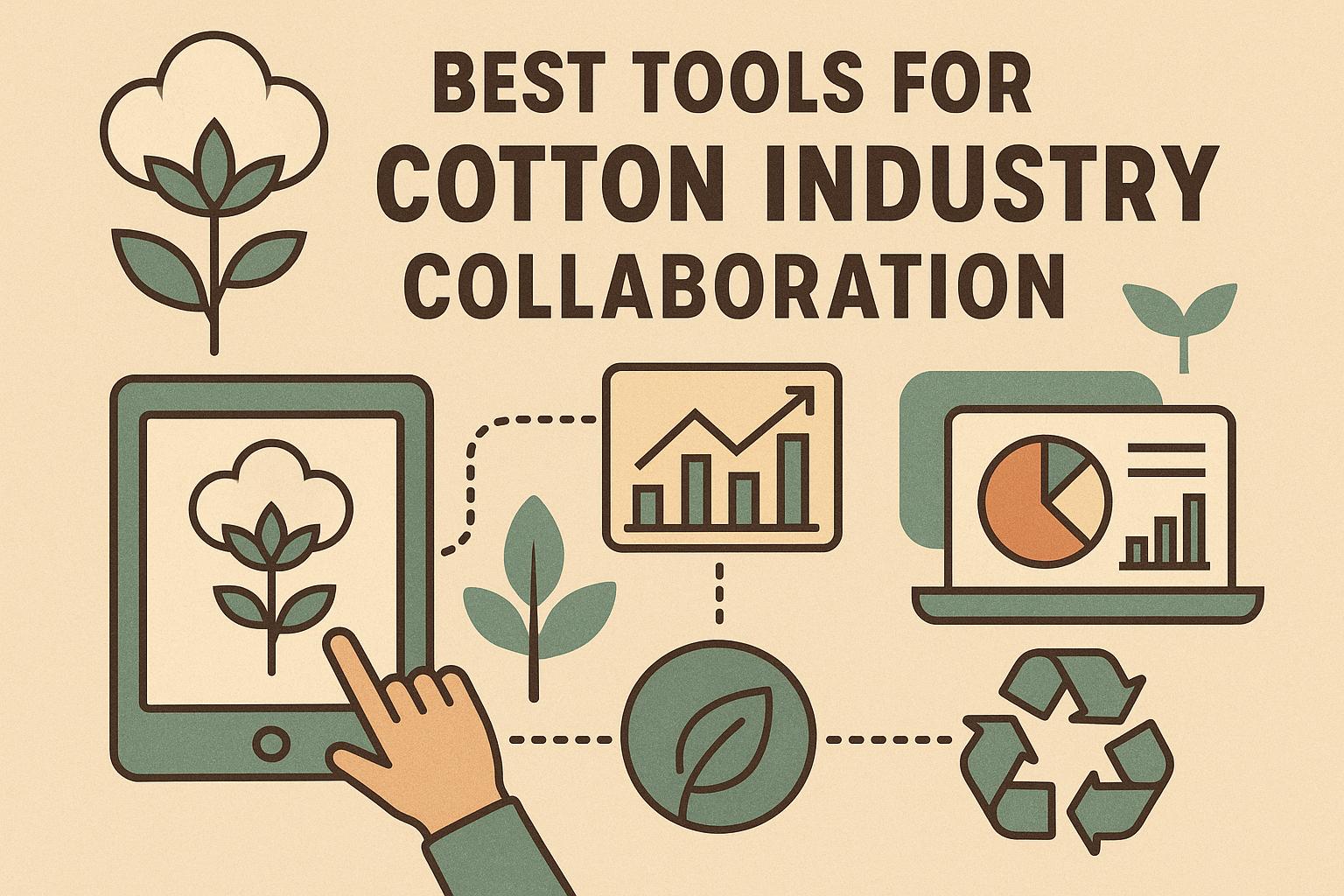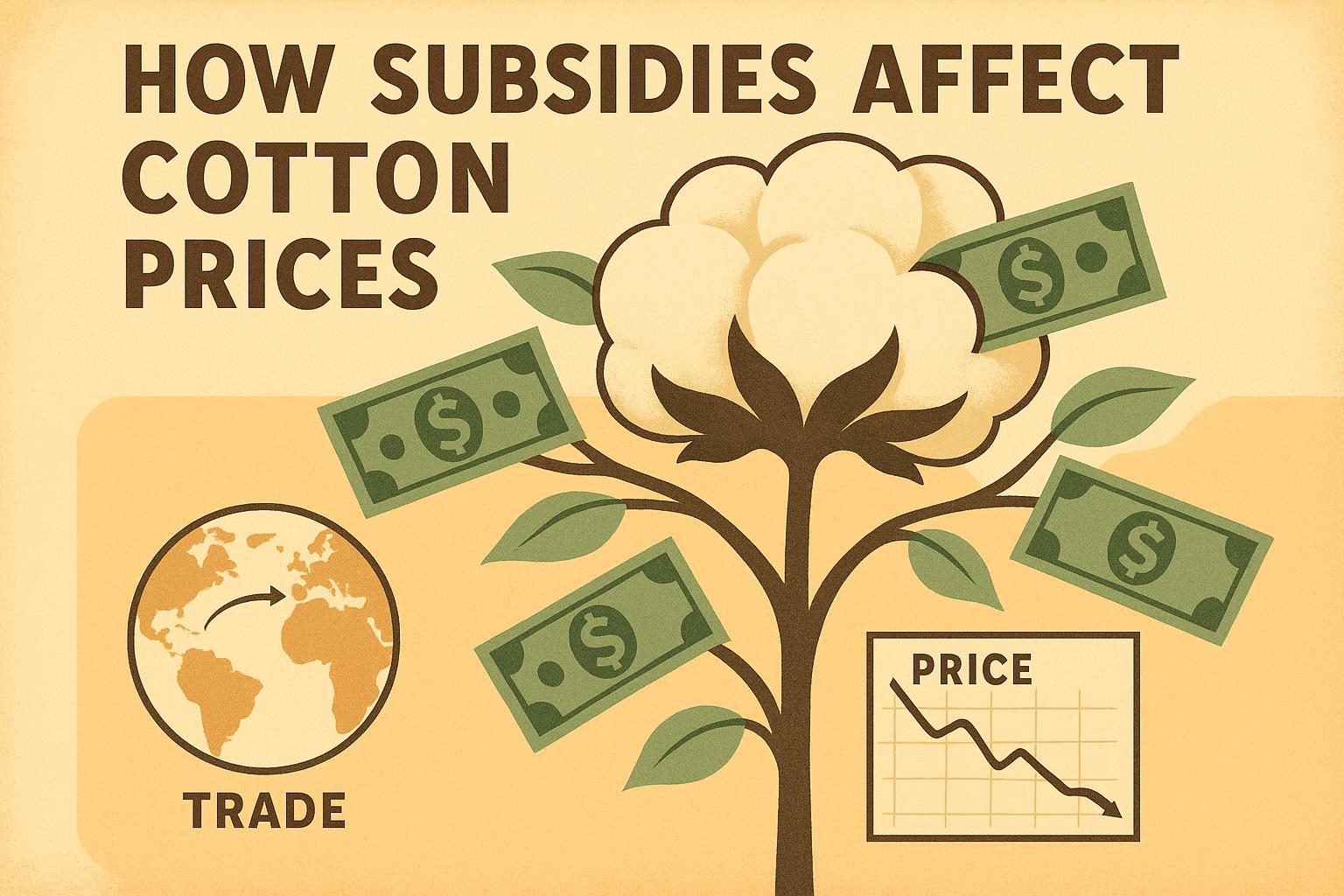Executive Summary (TL;DR)
- Advanced technologies like GPS, drones, AI, and blockchain are transforming cotton farming by enhancing precision, sustainability, and profitability.
- These innovations help optimize irrigation, pest control, and nutrient management, reducing waste and improving yields.
- Integrating sustainable farming practices with technology enables cotton growers to meet market demands while protecting natural resources.
Related Post: Explore sustainability in cotton at The Positive Environmental Role of Cotton Farming and Why It's Better Than Plastic Alternatives.
Introduction: The New Frontier in Cotton Farming
Cotton farming today is more than tradition and hard work; it’s a high-tech endeavor powered by data-driven decision-making and innovative tools. Technologies such as precision agriculture, drones, AI, and blockchain are reshaping every stage of cotton production—from planting and irrigation to pest management and supply chain transparency.
Seasoned cotton growers embracing these advancements not only boost productivity and quality but also enhance environmental sustainability, setting new standards for profitability and stewardship.
Leading Technologies Revolutionizing Cotton Farming
Precision Agriculture and GPS-Guided Equipment
GPS and GIS mapping allow siting field variability to be managed with unmatched accuracy. Precision planting, fertilizing, and spraying reduce waste, enhance uniform crop development, and conserve resources. Variable-rate irrigation guided by real-time moisture sensors cuts water usage significantly.
Drones and Remote Sensing
Drones equipped with multispectral and thermal cameras provide high-resolution monitoring of crop health, spotting nutrient deficiencies, pest hotspots, and drought stress early. This lets farmers apply precise treatments only where needed, reducing chemical inputs.
Artificial Intelligence and Predictive Analytics
AI-driven platforms analyze weather, soil, and crop data to forecast yields, predict pest and disease outbreaks, and optimize irrigation schedules, enhancing decision-making and lowering operational costs.
Blockchain for Traceability and Transparency
Blockchain ensures verifiable, tamper-proof records of sustainable cotton production practices, empowering growers to access premium markets by demonstrating sustainability credentials and ethical sourcing.
Automation and Robotics
Automated planters, robotic harvesters, and AI-driven processing systems reduce labor dependencies, increase operational efficiency, and elevate fiber quality through precision and reduced damage during harvesting.
Sustainable Practices Empowered by Technology
Cotton farming sustainability is gaining ground through conservation tillage, crop rotation, cover cropping, and integrated pest management. These techniques improve soil health, biodiversity, and ecosystem services while technology ensures precise input applications and real-time environmental monitoring.
Combining these approaches provides cotton growers with measurable gains in productivity and reduced environmental footprint.
How Growers Can Harness Innovations
- Initiate adoption with GPS-enabled machinery or precision irrigation upgrades.
- Incorporate drone scouting for frequent crop health assessments.
- Leverage AI tools for integrated crop management plans.
- Practice regenerative soil health techniques alongside tech adoption.
- Continuously analyze data to refine practices and validate ROI.
Collaborate with ag tech experts and extension services to accelerate learning and effective implementation.
Looking Ahead: The Future of Cotton Farming
Emerging AI systems, machine learning algorithms, robotic automation, and comprehensive digital platforms promise ever greater efficiency, sustainability, and profitability. Blockchain integration will expand transparency in global supply chains, enhancing consumer trust and market value for sustainable cotton.
Actionable Takeaways
- Embrace precision agriculture tools to optimize planting, irrigation, and input use.
- Deploy drones for early pest detection and crop monitoring.
- Adopt sustainable crop and soil management practices supported by digital insights.
- Track environmental impacts with blockchain-enabled platforms.
- Invest incrementally in technology combined with agronomic best practices.
Innovations in cotton farming are not just futuristic concepts but practical tools enabling seasoned growers to thrive amid evolving environmental and market challenges. Leveraging technology with sustainability offers the best path to maximize yields, cut costs, and ensure the future success of cotton agriculture.


